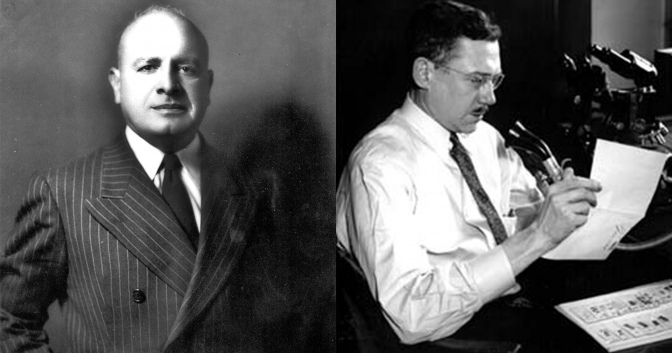The Original Drug Warriors: Harry J. Anslinger and James Munch

“KILLS SIX IN A HOSPITAL” blared a 1925 New York Times headline. “Mexican, Crazed by Marihuana, Runs Amuck with Butcher Knife.” At the time, the Federal Bureau of Narcotics (FBN), the predecessor of the Drug Enforcement Administration, had yet to be formed. But the seeds of Reefer Madness were already being sown in the press.
Pre-prohibition headlines in American newspapers often tied cannabis consumption to violent crime, spiced with racist undertones. “Mystery of the Strange Mexican Weed” read one in the Washington Post. “American and Mexican Authorities Seek to Curb Growing Use of Dread Marihuana Drug That Stirs Its Victims to Atrocious Deeds of Violence.”
Scholars have attributed such coverage to anti-Mexican racism. But it turns out that many of these sensational stories originated in Mexico, which banned cannabis in 1925, 12 years ahead of the U.S. “Though Americans would quickly turn marijuana lore against Mexican immigrants, that lore was based primarily on Mexican ideas,” historian Isaac Campos writes in his book, Home Grown: Marijuana and the Origins of Mexico’s War on Drugs.
Harry J. Anslinger was working diplomatic posts in Europe and enforcing alcohol prohibition in the Bahamas when the Treasury Department created the FBN in 1930 and named him to head it. But he had a problem: The Harrison Narcotics Tax Act of 1914 had outlawed heroin and cocaine, but there weren’t that many users of those drugs. When Anslinger saw reports of crazed murderers on mota in Mexico and Florida, he turned his attention to “marihuana.” Those who use it, he contended, “become insane and turn to violent crime and murder.”
Dr. James C. Munch, a Temple University pharmacologist, lent credibility to Anslinger’s reefer mania. They managed to convince Congress to pass the Marijuana Tax Act in 1937.
In the decades that followed, Anslinger made a habit of collecting lurid stories of crimes allegedly committed under the influence of the devil’s weed. He remained federal narcotics commissioner until 1962. Four years later, Munch wrote a paper for the United Nations Office on Drugs and Crime bulletin that included 69 “authenticated” cases from Anslinger’s files of various crimes committed by users, and asserted that “different races of people vary in their susceptibility to marihuana.”
No matter how many doctors and scientists tried to convince Anslinger otherwise, there were always ones like Munch who bought into the marijuana-violence argument.
Also see:
80 Years of Reefer Madness – Part 1
80 Years of Prohibition – Part 2
If you enjoyed this Freedom Leaf article, subscribe to the magazine today!

